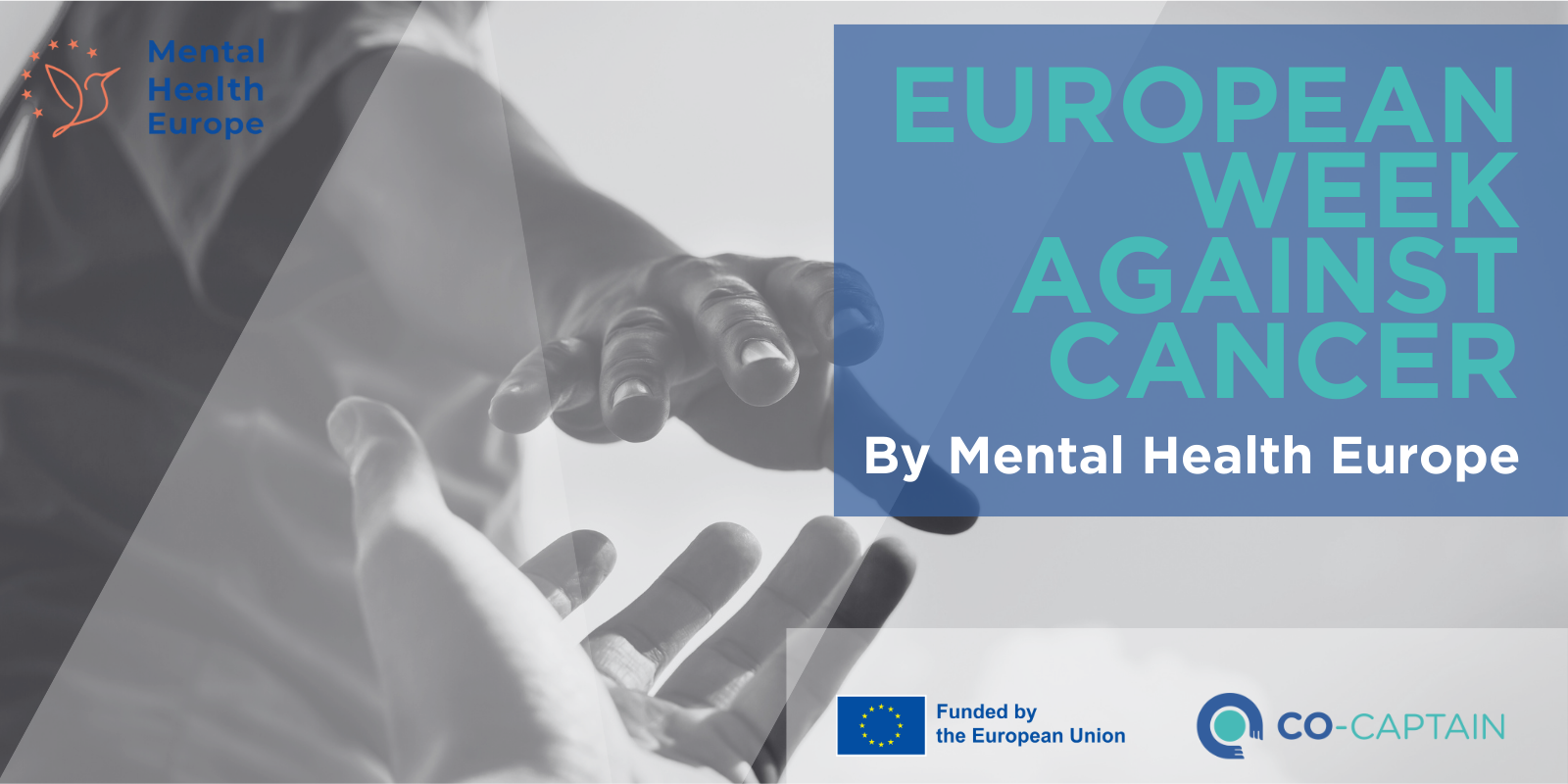In the occasion of the European Mental Health Week 2025 promoted by Mental Health Europe, the CO-CAPTAIN projects joins the call to look at mental health through the lenses of the psychosocial approach.
The psychosocial approach to mental health recognises that, in addition to a variety of life events and transition moments across the life course, our mental health is very strongly shaped by wider social, economic, and environmental factors. Having enough money to eat, somewhere safe to live, a job providing income, access to education and social security shapes our lives, our wellbeing and our mental health.
As a result it is important to make links between the health sector and social policies. This applies also to cancer prevention and more so for people experiencing mental health problems and psychosocial disabilities.
People with mental health problems have less access to health-related prevention and, as a consequence they have poorer physical health outcomes. It is essential to include cancer prevention in mental health services as much as it is important to frame prevention within an integrated services approach.
The CO-CAPTAIN Patient Navigation Model intends to work in this direction. This model goes beyond merely focussing on the health needs that people with mental health problems have in relation to cancer prevention. The CO-CAPTAIN model offers human and accessible support and it helps to overcome practical, emotional and structural barriers. It aims at building a partnership between people with mental health problems accessing prevention and health services, their close ones, the figure of the navigator helping them navigate the system and different actors who can play a role in facilitating pathways that can bring solutions to other factors impacting mental health and one’s ability to take care of their physical health too.
Very importantly, the CO-CAPTAIN model has been shaped in co-creation, thus enabling an exchange of perspective among different actors on how to best address cancer prevention among people experiencing mental health issues and making sure their voice is well heard throughout the project and impacts decisions.
While the piloting of this model is still ongoing, the lessons that will be learned will be beneficial in replicating and possibly improving this approach in the spirit of putting people in vulnerable situations at the centre and learn from to those who experience health and social barriers on a daily basis. Ultimately they are experts by experience and it is their fundamental right to have equal opportunities to take care of their health as well as enjoy their social rights.
Authors:









